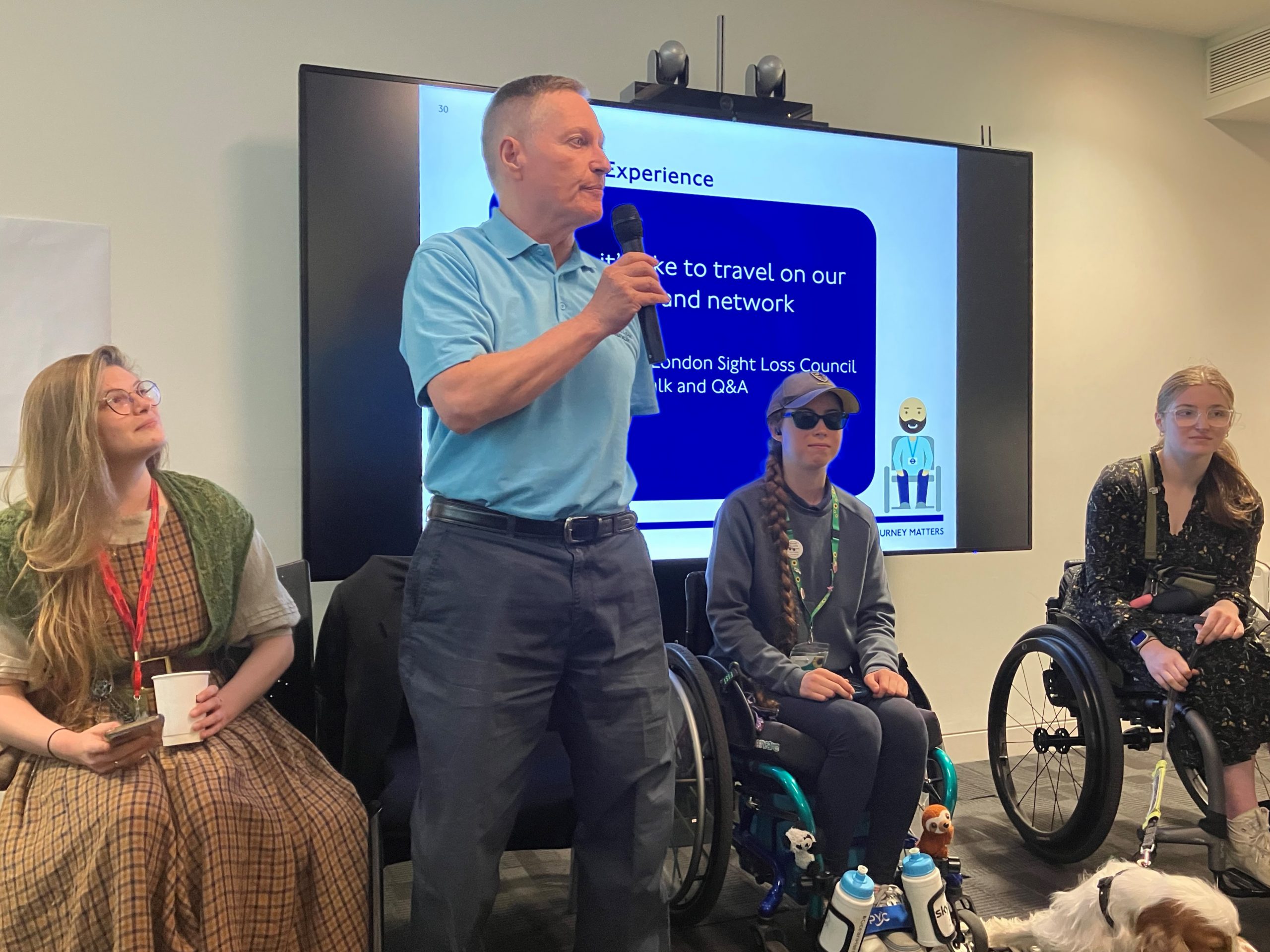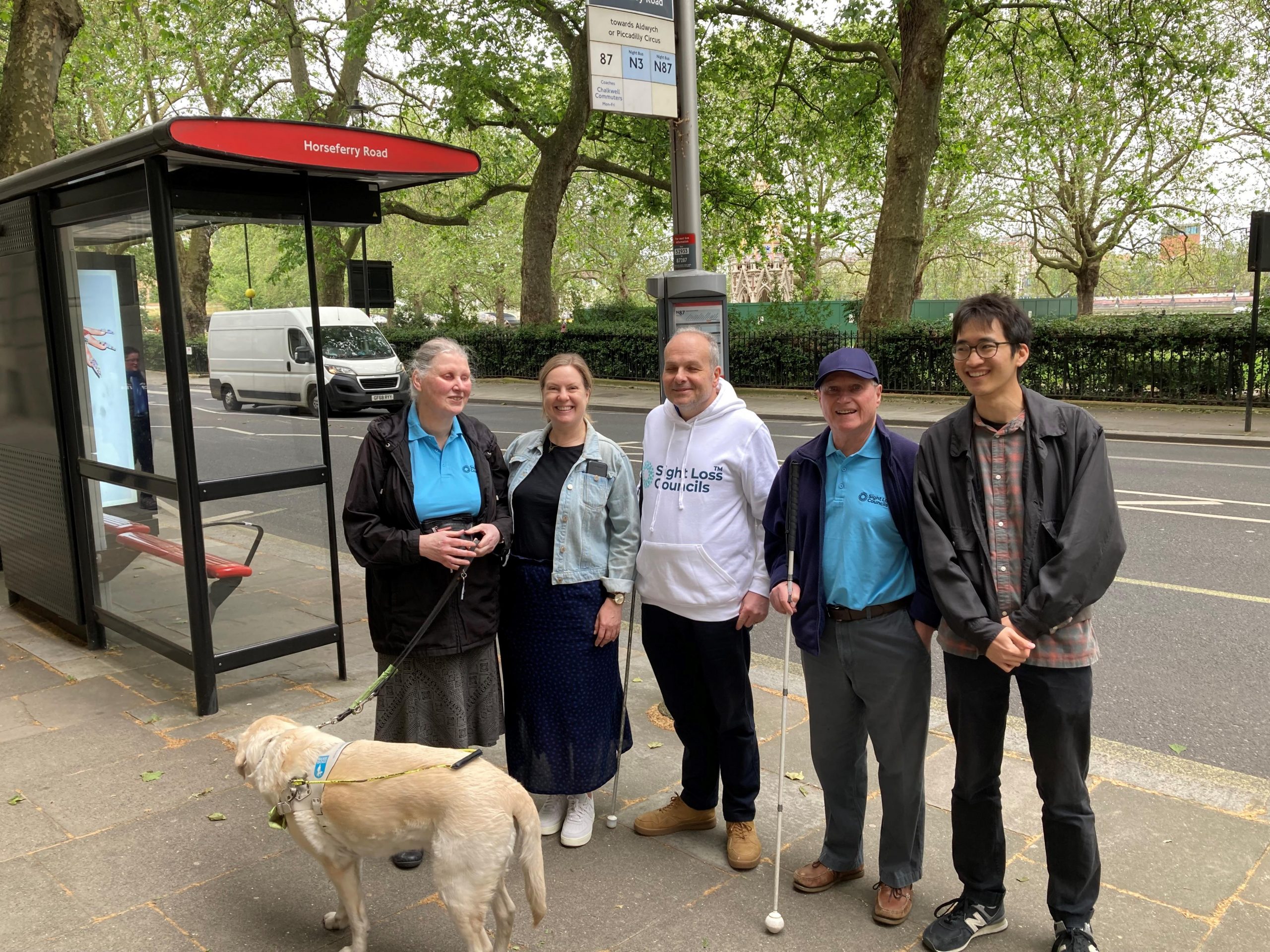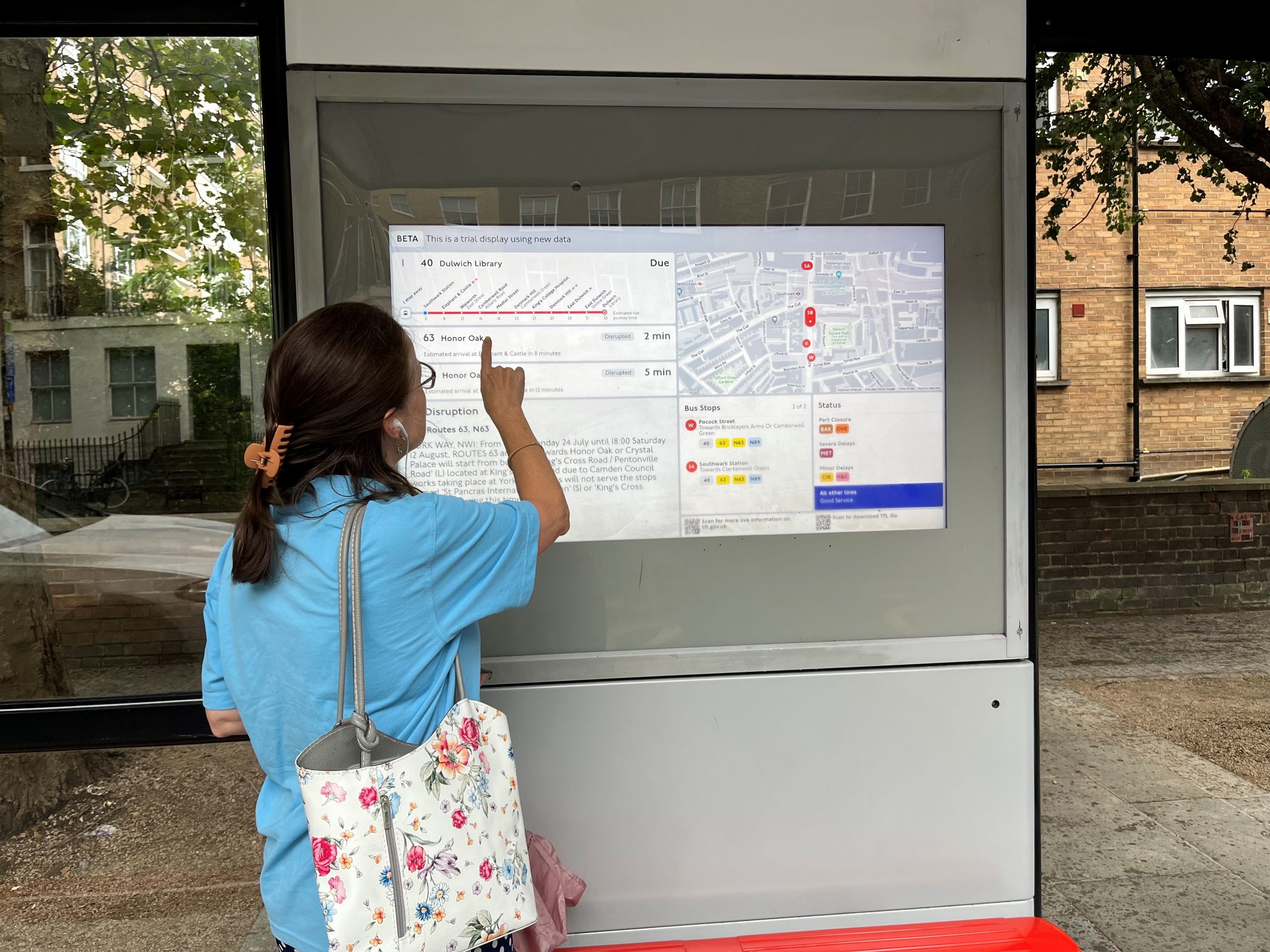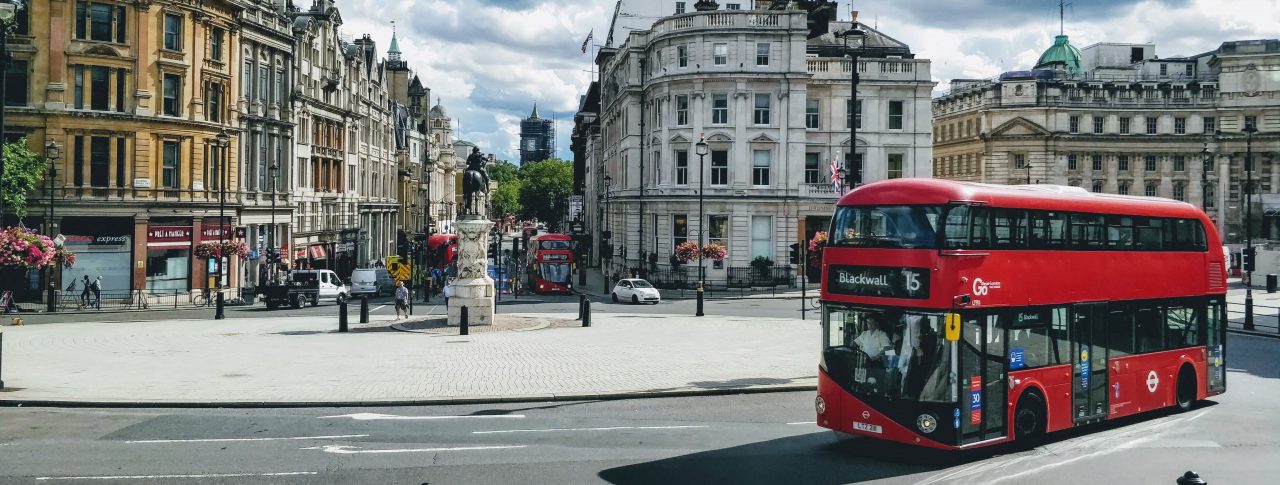London SLCs and TfL partner to increase accessibility of transport
London Sight Loss Councils have developed a partnership with Transport for London (TfL) to increase the accessibility of transport across the city.
Sight Loss Councils across England are prioritising making transport accessible because 65 per cent of blind and partially sighted respondents told us it was most important to them (Listening month, 2022).
Lived experience of travel
As part of this partnership, on 13 July 2023 South West London SLC member Harry shared his lived experience of using the Tube network with the TfL fleet renewals team.
The aim of the talk was to increase their understanding of sight loss, barriers to travel on the London Underground and priorities for improvement. The fleet renewals team also listened to the views of other disabled passengers on a panel, as part of the session.

Harry, South West London SLC, presenting to the fleet renewals team alongside Sam Pugh, Engagement Officer & Accessibility Lead at TfL, and Rebecca and Ella from Whizz Kids
The fleet renewals team is responsible for making changes to their fleet of rail carriages. It includes around 60 engineers, shop floor fitters, delivery managers, and support staff.
Feedback from TfL fleet renewals team members includes:
“The disabled customer sharing [their lived experience] inspired me for the engineering project to be developed and play an important role for inclusive and diverse societies.”
“To hear the pros and cons of experience from the accessibility panellists, by hearing their experience, helped to raise my level of awareness and understanding of their daily experiences.”
Testing proposed changes to bus routes
In April 2023, South West London SLC volunteers Mary and Harry took part in TfL’s central London interchange trial to inform proposed changes to bus services in Southwark and Westminster.
The interchanges which formed part of the trial are points at which passengers must get off a bus and walk to another stop to continue their journey. These changes would amend a previously direct route to an indirect one, involving a change of bus and bus stop. SLC members’ role was to assess the practicality of these changes for blind and partially sighted passengers.
As a result of this assessment, the first proposed change to replace bus stops with an interchange and create an indirect route was abandoned due to concerns about distance, complexity and safety.
The second proposed interchange in Westminster, where passengers now alight from bus 3 on Horseferry Road and walk to Millbank to change to bus 87, did not create the same level of challenges. However, SLC proposed to have user friendly text available on the TfL website to explain the walk between Horseferry Road and Millbank from a blind or partially sighted person’s perspective.
SLC members revisited the Westminster interchange to develop this text, using their lived experience of sight loss to do so.

South West London SLC members, with Hazel Spresser, Customer Experience Manager, and Benjamin Man, Engagement Officer, at TfL
SLC members also fed back to TfL that bus information and descriptions of walking routes need to include:
- bus stop names and not just bus stop letters
- street names of side turnings and road crossings on the walking route
- illustrate floating bus stops, road crossings and cycle lanes on bus interchange maps.
This learning will inform future work at TfL.
Continuing our partnership with TfL
Our work with TfL has continued. On 31 July, six London SLC members tested new accessibility features on London bus stops and buses. This includes an audio announcement button which announces bus arrival times, and LCD display screens which provide clearer visual information. Feedback gathered will help inform TfL of next steps in their project, which we will continue to support. On 21 August, SLC members also trailed the NaviLens wayfinding app on Docklands Light Railway.
Another key project London SLC members have been involved in is research into colourful crossings and their accessibility for blind and partially sighted pedestrians. Colourful crossings are where large graphic artistic designs are added to the walkway where pedestrians cross the road. This can cause issues for visually impaired people being able to see the crossing.
The continuation of our partnership with TfL will help make transport more accessible to blind and partially sighted people across the city.

Vicky, South West London SLC member, testing the accessibility of a new LCD display panel at a bus stop
South West London SLC volunteer, Harry Meade, explained:
“Being severely sight impaired, I depend heavily on public transport to get around. Therefore, I have been happy to get involved this work with TfL. This includes providing feedback on the proposed new TfL interchange and bus route changes, accessible route descriptions for BPS people, and providing vision awareness sessions to TfL’s fleet renewals team.
“I was also invited to share my lived experience of using the underground trains and to highlight the features I find most important.
In both instances, the level of engagement and interest from TfL was fantastic and something the Sight Loss Councils would love to do with other transport providers.”
Hazel Spresser, Customer Experience Manager at TfL, said:
“Our Customer team will now use this new text created by London Sight Loss Council as an example of best practice. This will inform our current standard on the TfL website and journey planning tools for when detailing a walk to the interchange.
“Thank you, Sight Loss Councils, for your work and effort producing the recommended description for walking interchanges. It shows the level of description that TfL should be aiming for, with all relevant stakeholders within the business engaged to make future improvements.”
Make transport accessible
London Sight Loss Councils are also continuing work with other transport providers and run the Greenwich Transport accessibility forum for blind and partially sighted people. We also continue to attend the TfL Inclusive Transport Forum to provide our feedback to inform their future work.
Join us
Passionate about making a difference? Want to influence positive change? Our Sight Loss Councils, led by blind and partially sighted volunteers, are recruiting new members. Join us today!
We use our lived experience to create positive change for others. Together, we tackle local issues and work with businesses and service providers to improve the accessibility of their services.
Join us to help ensure visually impaired people in your area can live the lives they want to lead.
You’ll get the opportunity to create positive change for others, meet like-minded people, have a voice, feel valued, receive training and learn or enhance your skills. Whether you’re interested in public speaking or honing your social media skills, there’s something for everyone to get involved in.
Stay in the know
If you want to stay up to date with news from the Sight Loss Councils, sign up to our mailing list.
Publication date: 12 September 2023

